MOL Moore Chain Academy - What is the essential difference between centralization and decentralization?
MOL Moore Chain Academy: There is a saying in the currency circle: "The primary market cuts the second level, the cornerstone cuts the level, the exchange is the god of heaven, and eats all." Since 2014, more than 10,000 centralized exchanges have been born. . Leverage, black money, money, money, money rollback, platform currency breaks... almost every day, we can see the negative news of the exchange.
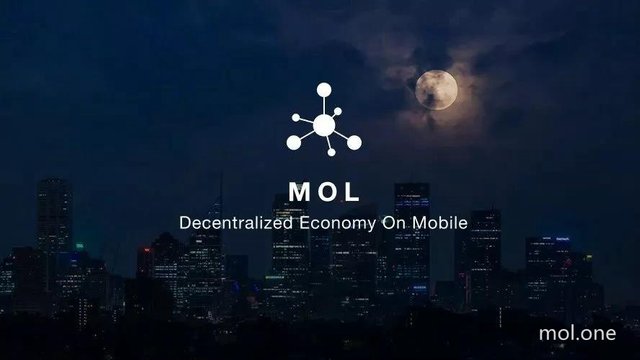
Too many exchanges have experienced attacks, such as the famous MtGox, as well as Bitfinex, ShapeShift and Bithumb. The most ironic thing is that the centralized exchanges trade on decentralized tokens.
Centralized exchanges are an industry that is farthest from blockchain technology, but it is extremely prosperous. Qian Haitao, founder of Moore Chain MOL, believes: "The development and growth of this industry represents a market malformation."
In the world of exchanges, one side is the old-fashioned currency exchange, such as currency security, fire currency, OKEx, and the other is the decentralized exchanges such as BitShares, 0x, Cybex, and Kyber.
In the so young industry of blockchain, there has been a confrontation between old and new forces. Qian Haitao, the founder of Moore Chain MOL, explains the nature and difference between the centralized exchange and the decentralized exchange.
1, the existence logic of centralized exchanges
In thousands of exchanges, the ability of exchanges to hold assets for users has become the biggest risk. Such as a sword of Damocles, there are occasional exchanges of money and money, so that the entire currency is always worried. But it is still the mainstream of the current exchange.
In Qian Haitao's view, this stems from two major functions of the central exchange: 1. Improving efficiency; 2. Serving as an intermediary.
In the Internet world and the classical financial world, the middleman is a necessary role in the market. A good middleman enterprise will naturally share a piece of profit distribution. The middleman defines the clear rules of the two sides' procedures, agreements, and expectations, and is more efficient than skipping the intermediary to cooperate and communicate.
In addition, two people can't trust each other, but they trust the middlemen, so they can rely on the middleman to conclude a deal or cooperation. The most typical middleman is the bank, as well as the Shanghai Stock Exchange.
The reason why we believe in the security of banks and SSEs is because the state's public power is endorsed. The incident of robbing the bank may not happen often, and it will be subject to legal sanctions and recovery of theft.
Centralized exchanges are the "intermediaries" in the world of cryptocurrency. However, it only solves the efficiency problem, but it does not completely solve the trust problem. The current centralized exchange business model can be said to be "golden eggs with cocks."
Centralized exchanges usually also run e-wallets, allowing users to deposit money directly on the exchange. Compared with the fact that we have the RMB in the bank, even if there is WeChat or Alipay, the security is much worse.
In the world of cryptocurrencies where the law is not yet clear and the rights are not protected by public power, the losses are entirely the responsibility of individuals, and the risk of the exchanges running away from money is enormous.
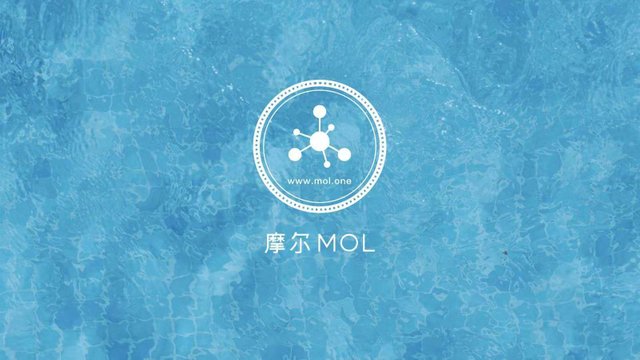
Specifically, there are two main risk risks for centralized exchanges:
One is the factor from people.
Large exchanges use the user's digital currency to make a sell-off to get a low-cost digital currency. Or, obstructing the user's process of withdrawing money to their digital wallet is an example of not fulfilling financial obligations.
The second is technical risk.
For example, in August 2016, Bitfinex was stolen due to security breaches on its website. On February 10, 2018, the Italian exchange BitGrail was hacked and lost 17 million NANO coins worth a total of about $170 million.
Risks, the exchange as a middleman has not disappeared, indicating that almost all users are partially sacrificing trust for efficiency. But this is always the heart of the central exchange.
2, eliminate the decentralized exchange of the middleman
Safety is the biggest attraction of decentralized exchanges.
"You no longer have to worry about your private key being in the exchange." It completely eliminates the middleman and eliminates the trust crisis between the two parties. The global server keeps track of every transaction you make, and it can be said to be more reliable than the National Bank.
In fact, the advantages of decentralized exchanges are not limited to this. The most advantageous advantage of the centralized exchanges is the security at the policy level. At present, several major exchanges are “flowing” in various countries because of policy issues.
After the "March 4", the currency has withdrawn from the Chinese market. Due to the supervision of the Japan Financial Services Agency, exchanges such as Firecoin, Coin and BigOne were expelled from Japan. OKEx prohibits the use of citizens of more than a dozen countries, such as the United States, South Korea, and Malaysia, to avoid legal risks.
Recently, OKEx and Coin An settled in Malta, a small European country, and received approval from the government to be relieved.
Decentralized exchanges are different.
The premise of judicial supervision is that there are regulatory objects, generally legal entities such as institutions and companies. The decentralized exchange is just a procedure, there is no national border, and it is deployed on the Internet. It is simply an ERC-20 token transaction through a smart contract between wallets. There is no license or policy issue at all.
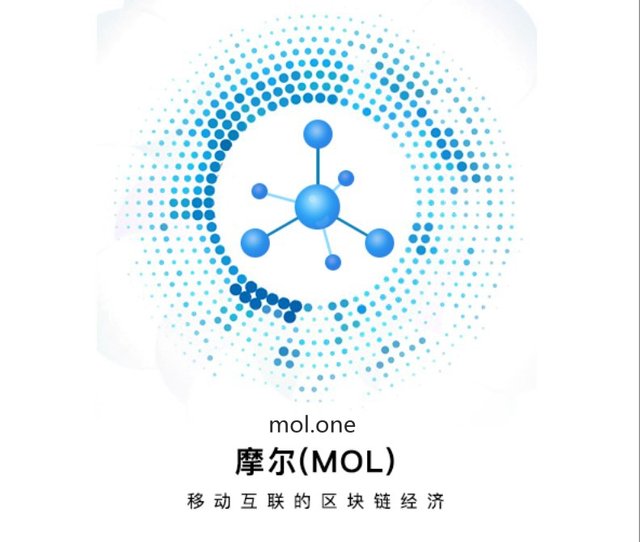
In this system, the "on the currency fee" chaos will naturally disappear.
The amount of the currency fee requested by the head exchange is usually terrible. A research institute in the United States has investigated that an ICO project entering the head exchange requires a $1 million in foreign currency fee, and a quick increase in token liquidity would require $3 million. In contrast, stocks on the Nasdaq only need $125,000 to $200,000.
The part cut off by the exchange can only be cut back from the investor.
Qian Haitao, the founder of Moore Chain MOL, pointed out that a good blockchain project could not pay millions and tens of millions of such unreasonable foreign currency fees, so it gradually formed a deformed market for bad money to drive out good money.
Centralized exchanges have nothing to do with the blockchain except that the assets are blockchain. "It is actually selling the software industry," Qian Haitao pointed out the current market morbidity.
3, the imagination of the decentralized exchange
Decentralized exchanges are still in their infancy on the road to replacing traditional exchanges, but they are starting. Exchanges such as 0x, Ethfinex, and Cybex have aroused strong interest.
Mo Hailin MOL founder Qian Haitao predicted that within one or two years, the decentralized exchange will become the mainstream: "In the end, the Internet needs not a bank transfer, but online payment. This concept may not be so fast, but everyone will sooner or later. Recognize this."
In the future, decentralized application scenarios will be beyond imagination, "issuing assets is like sending Weibo."
Everyone can issue their own token.
For example, you want to open a chain fast food restaurant, but there is no money. At this time, you can issue a total of 10 billion yuan in MOL one-click assets (XX fast food or XX buns), and 5 billion as a private fund. Your chain store can start, and those who hold the pass can freely trade chips. It can also be directly used in chain stores with the pass, and converted at market price. This is the role of the certificate in the future of physical projects, a wallet can hold a variety of physical assets. As a new type of entity entrepreneur, the assets issued in MOL can play a role in financing, and can also lock in new consumer groups (shareholders), and can also realize the digitization of intangible assets (the remaining chips in the hands, that is, the numbers) assets).
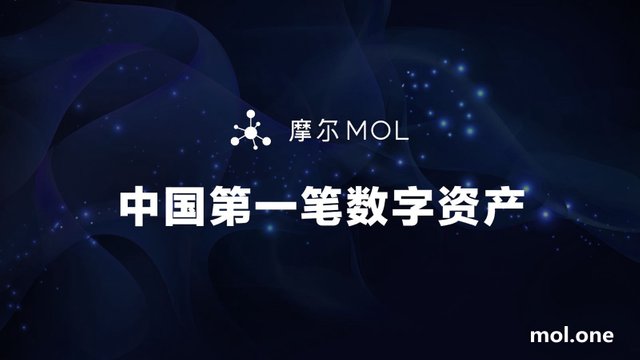
As a physical endorsement asset, it will definitely become the driving force for attracting other industries. If the dog does not care, Beijing Roast Duck, KFC, or XX food, or specialty chain stores .......... / have a certificate of their own in the MOL wallet, it is quite own to grasp the entity and A digital asset that has the intangible value of the brand. Therefore, entities in the most advanced digital asset field must have a very large strategic advantage.
As a MOL holder? (Wallet users) is first and foremost a Moore shareholder. If it is funded by an entity that uses MoL assets as a standard, it becomes a shareholder of the new entity, with MOL's one-click asset issue. As costs increase and the brand value of the entity increases, the MOL and entity pass in your hands will appreciate. As a future asset-type, semi-centralized asset issuance bank, although there is no centralization (bank office staff) agency costs, but there are nodes and safe maintenance costs, then as the market slowly expands, if the assets are issued, if used MOL pledge, then MoL in your hand is also very useful. If various MOL certificates and MOLs are exchanged, 0 commissions, the MOL public chain that arrives at the account will break the traditional concept of mining and directly enter the use stage of the pass.
In addition, with the progress of decentralized exchanges, cross-chain and cross-wallet transfer will be more convenient. The position of the Moore wallet will be higher and higher, because the coins that were previously placed on the exchange will exist in the private wallet.
Mo Hailin MOL founder Qian Haitao's advice: "Don't believe that platform currency, as long as it is a currency exchange, there is a desire to make money, not simple. If the Chinese government opened an exchange, or the United States Nasdaq When I open an exchange, I will definitely buy it because the exchange will be fair."
In the past, fairness was an endorsement of public power. In the future, the absolute guarantee of procedural guarantees – the era of decentralized exchanges, or the future, the chaos of traditional exchanges will become a thing of the past.
4, the dilemma of decentralized exchanges
Regrettably, decentralized exchanges will not replace centralization in the short term, and it also faces serious problems. The core problem of decentralized exchanges is that TPS is not high enough to achieve real-time cross-chain trading, which is too slow.
But this problem is gradually solved, and the development of cross-chain technology can also increase TPS.
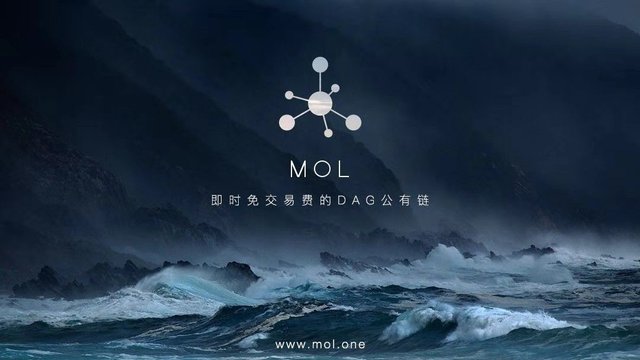
Token can circulate value between public chains, and cross-chain contracts can be processed faster than people. This will create a positive cycle, and more and more public chains will also support cross-chain, landing on the decentralized exchange.
Another problem with decentralized exchanges is that the user experience is not good enough.
To give you the simplest example: the user password is lost, the centralized exchange can help you find it, but no one can help you keep it on the central exchange. In addition, limited mobility and complex operations are also defects in the user experience.
But these problems are technical problems that can be solved in time, and the user education that follows will gradually spread.
From the perspective of users' needs, whether the exchange is centralized or decentralized is not the core. The core is the trading experience and financial security.
First of all, the speed is fast, don't wait too long; secondly, there is trading volume, you can quickly trade; once again, there is a suitable transaction price; finally, the funds are safe and trustworthy. Of course, these four are ranked differently in each person's mind.
99% of the liquid assets of the currency circle are still in the hands of centralized exchanges. In the short term, the strong parties are still in the central exchanges such as currency security and fire coins, because they occupy resources such as technology, users and operational experience.
But since the decentralized exchange must be the future, the possibility of subverting the latter will still exist.
Finally, I shared a paragraph from Mo Hailin’s founder, Qian Haitao: “I firmly believe that cryptocurrencies will change the world, replace the stock market, most currencies, and pay for machine-to-machine, Internet of Things, streaming media, and forecasting the market. Power, governance systems, voting systems, and even everything on the Internet. Having said that, cryptocurrencies still have a long way to go, and most of these areas are still at a very early stage."